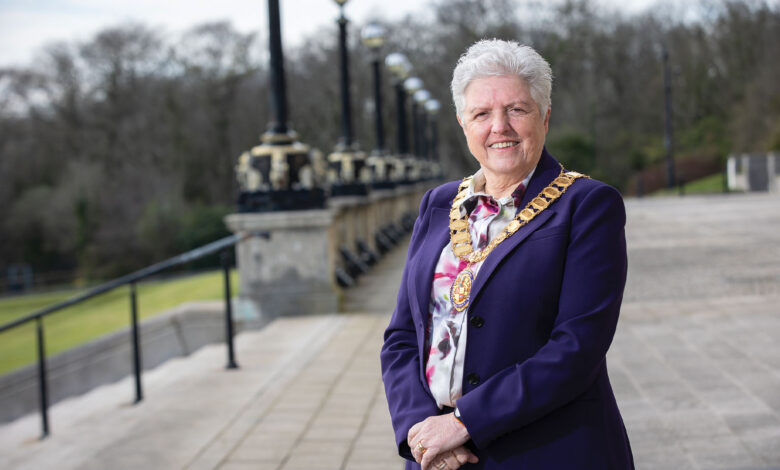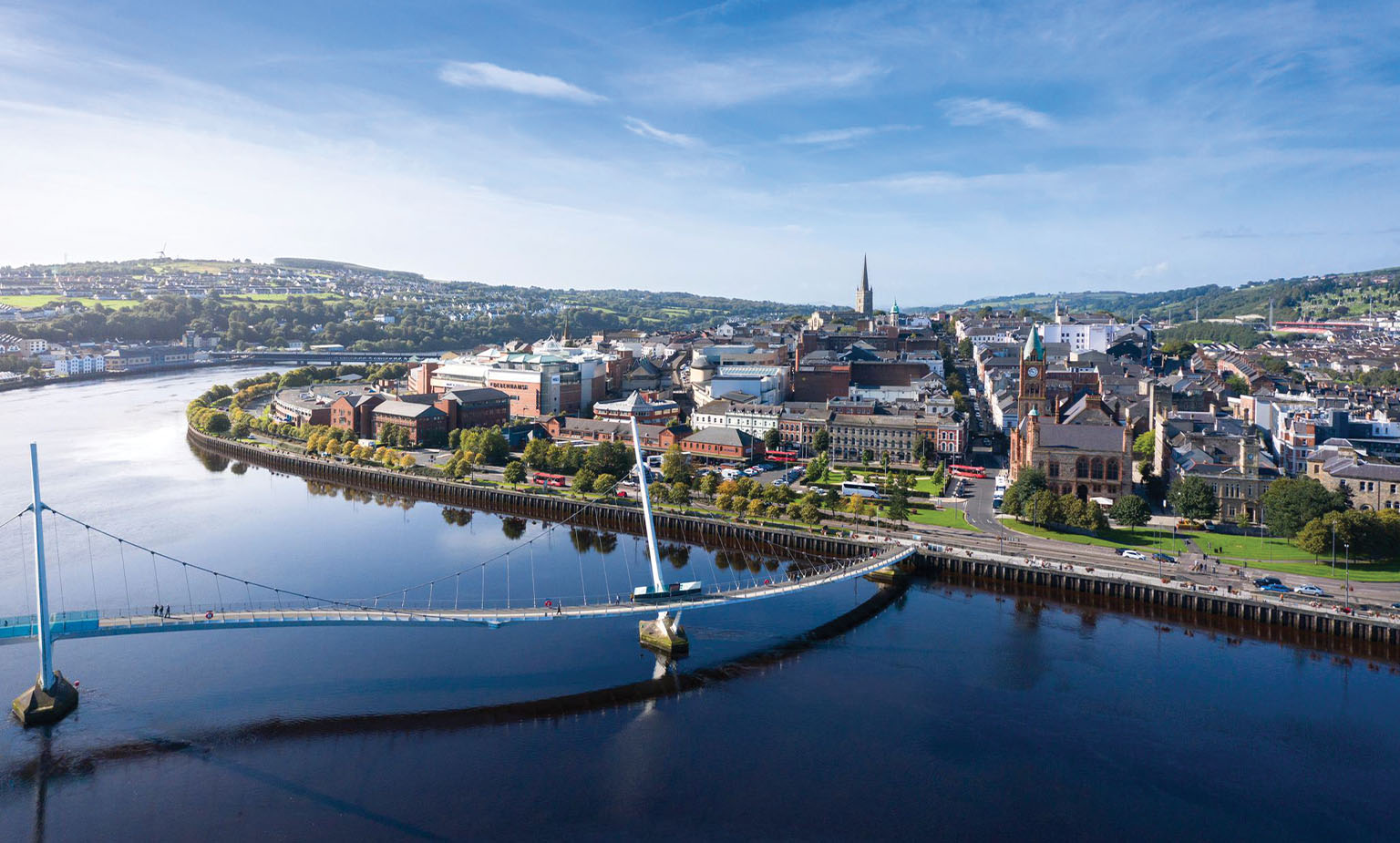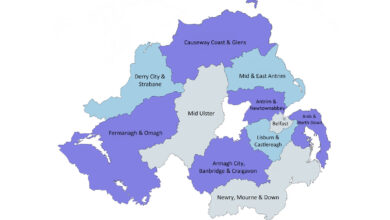Northern Ireland local government: A decade of change

Local government reform in Northern Ireland has undergone a significant transformation over the past decade. The changes have sought to enhance the efficiency, transparency, and accountability of our local councils, empowering them to deliver better services and drive economic and social development.
Central to this transformation has been the evolving role of councillors, who have become pivotal in implementing reforms and advocating for their communities.
Reflecting on the past 10 years provides insights into the successes achieved, opportunities taken, and the pathways for future growth and development.
The most significant milestone in recent local government history was the 2015 restructuring and reform of the sector. This reduced the number of councils in Northern Ireland from 26 to 11 and the number of councillors from 582 to 462.
This reorganisation aimed to streamline local governance, reduce duplication of efforts, and achieve economies of scale. The reforms also provided councils with enhanced powers, including planning, community development, and economic regeneration. The devolution of these responsibilities brought decision-making closer to local communities, ensuring council services were tailored to their specific needs.
The introduction of the Local Government Act (Northern Ireland) 2014 formalised many of these changes, emphasising the importance of robust governance, long-term financial planning, and community engagement. The Act also laid the foundation for the adoption of community planning, which required councils to collaborate with statutory bodies, the private sector, and community organisations to deliver strategic development plans.
Evolving role of councillors
Over the past decade, councillors have become central to local governance in Northern Ireland. Their role has evolved from one focused primarily on service delivery oversight to one encompassing strategic leadership, community engagement, and partnership building.
- Strategic leadership: With the transfer of planning powers and the introduction of Community Planning, councillors have had to adopt a more strategic approach. They play a key role in setting long-term priorities, ensuring alignment with regional development strategies, and addressing cross-cutting issues like economic inequality, housing, and climate change.
- Community advocacy: Councillors serve as the bridge between the council and local communities, advocating for constituents’ needs and ensuring their voices are represented in decision-making. This requires a deep understanding of local challenges and opportunities.
- Partnership building: Successful governance in a post-reform environment requires collaboration. Councillors have had to collaborate closely with statutory partners, businesses, and community organisations to develop and implement effective policies.

Successes of the past decade
The reform agenda has delivered several notable successes, highlighting the potential of streamlined and empowered local governance.
- Improved efficiency and financial management: The reduction in the number of councils has led to savings. Councils have also adopted modern financial planning tools, ensuring better resource allocation to support long-term sustainability.
- Enhanced service delivery: By bringing decision-making closer to communities, councils have been able to design services that better reflect local needs. The transfer of planning powers has allowed for greater community input and consideration.
- Community planning frameworks: Councils have made strides in implementing Community Planning, fostering greater collaboration across sectors. These plans have addressed key local priorities, such as health and well-being, economic growth, and environmental sustainability.
- Economic development initiatives: Many councils have successfully spearheaded initiatives to attract investment, support local businesses, and create jobs. These include urban regeneration projects, rural development programs, and efforts to boost tourism.
Opportunities leveraged
- Citizen engagement: Councils have increasingly used digital tools and platforms to engage with residents, ensuring greater transparency and public participation in decision-making. The development of digital engagement tools allowed councils to pivot their engagement with the public to online and digital channels during the Covid–19 pandemic, enabling councils to maintain communications and services.
- Local identity: By emphasising the unique strengths of their areas, councils have leveraged local identity to boost tourism and attract investment.
- Environmental sustainability: Councils have played a key role in helping to address environmental challenges, including waste management, energy efficiency, and biodiversity protection. Projects such as renewable energy schemes and green infrastructure developments have been initiated.
Future opportunities
Looking ahead, Northern Ireland’s local government face many opportunities to build on the foundations of the past decade.
- Devolution of powers: Properly funded and resourced, there is potential for additional powers to be transferred to councils, particularly in areas like housing, transport, and education.
- Digital transformation: Councils can expand their use of technology to improve service delivery, enhance citizen engagement, and drive innovation.
- Climate action leadership: Local governments are well-placed to lead the transition to a low-carbon economy. By implementing ambitious climate action plans, councils can reduce emissions, create green jobs, and enhance community resilience.
- Strengthening community partnerships: Councils can deepen their collaboration with community and voluntary organisations to address social challenges, such as poverty, mental health, and social isolation.
- Collaboration: Northern Ireland’s councils have opportunities to collaborate with counterparts in England, Scotland, Wales, and the Republic of Ireland. Such partnerships can support regional prosperity, learning and environmental efforts.
Challenges to address
Despite these opportunities, there are challenges that councils must navigate. Financial pressures and public expectations for improved services are ongoing concerns. Additionally, achieving meaningful citizen participation and balancing competing priorities require continuous effort and innovation.
The reform of local government in Northern Ireland over the past decade has laid the groundwork for more efficient, responsive, and dynamic councils. Councillors have played a critical role in driving this transformation, demonstrating leadership, fostering collaboration, and advocating for their communities.
While significant successes have been achieved, the journey of reform is ongoing. By embracing new opportunities and addressing emerging challenges, our member councils can continue to strengthen their impact, delivering tangible benefits for our constituents and contribute to the region’s long-term prosperity.

T: 44(0)28 9079 8972
W: www.nilga.org
X: @NI_LGA
LinkedIn: Northern Ireland Local Government Association





